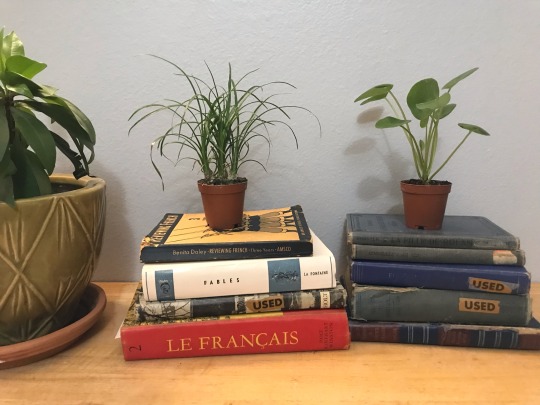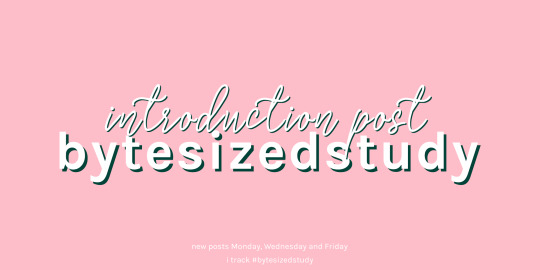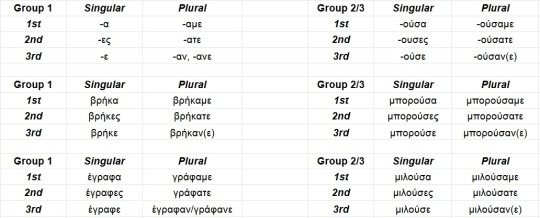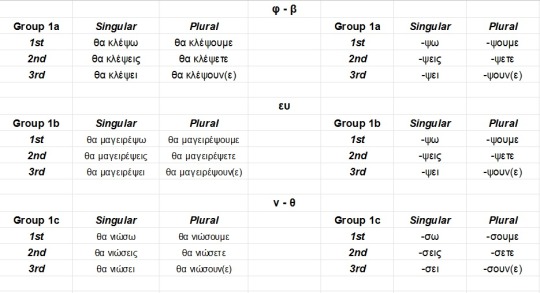Text
If your plot feels flat, STUDY it! Your story might be lacking...
Stakes - What would happen if the protagonist failed? Would it really be such a bad thing if it happened?
Thematic relevance - Do the events of the story speak to a greater emotional or moral message? Is the conflict resolved in a way that befits the theme?
Urgency - How much time does the protagonist have to complete their goal? Are there multiple factors complicating the situation?
Drive - What motivates the protagonist? Are they an active player in the story, or are they repeatedly getting pushed around by external forces? Could you swap them out for a different character with no impact on the plot? On the flip side, do the other characters have sensible motivations of their own?
Yield - Is there foreshadowing? Do the protagonist's choices have unforeseen consequences down the road? Do they use knowledge or clues from the beginning, to help them in the end? Do they learn things about the other characters that weren't immediately obvious?
87K notes
·
View notes
Text
Cantonese Resources
This will be a list in progress, just whatever I find. Feel free (please help) to recommend any resources that you know of.
Websites:
cantonese.sheik.co.uk
This has characters, vocabulary, pronunciation help, essays, a bunch of different stuff, Beginner to Intermediate. CantoDict is apart of this (add /dictionary/ to the url)
cantoneseclass101.com/cantonese-resources/
Some stuff for grammar, reading and writing, pronunciation, etc. The actual course is Beginner to Advanced, but the free stuff is just beginner. They also have a free Word of the Day email newsletter thingy.
cantonese.ca
Vocab lists!
livelingua.com/courses/cantonese
Audio lessons along with a textbook. It seems free (and claims so). It's only a basic course, and comes with a dictionary as well, although it's hard to see the characters well. They also have tons of other languages (including ones like Igbo and Finnish, so check it out).
cantonese-alliance.github.io/courses.html
Okay this one is super cool. In the proficiency levels tab, they have some curriculums for different levels (with tons of resources). There's also 'Cantonese through films' which has a long list of movies organized by decades. Even more materials, historical, linguistic, and the like. Overall, super interesting.
savecantonese.org/education
Textbooks and resources (most of which are mentioned).
These are just the first few things I've found, but there's alot, so I', making a spreadsheet with everything else on it too. Hope this helps!
122 notes
·
View notes
Text
Masterlist Langblr challenges
Following from my previous posts, if you do feel like working on your languages, but don't know where to start; here are some langblr challenge you might like!
Language Blog Challenge: 20 weeks of challenges | by @lily-learns-finnish
Langblr Reactivation challenge | by @prepolyglot
14 Day langblr challenge | by @lass-uns-studieren
Langblr News challenge | by @tealingual
90-day vocab challenge | by @jibunstudies
100 Happy Days Langblr Challenge | by @nordic-language-love
Mini speaking challenge | by @nordic-language-love
16 words challenge | by @neblina-a-blin
30 day langblr challenge | @moltre-s
Brick-by-brick language learning challenge | @linguistness
Langblr word of the day challenge | @nordic-language-love
P.S. Please let me know if you know some more fun langblr challenges!
511 notes
·
View notes
Note
Oh goodness my pronunciation is so bad-
haha it always starts out that way (even if you are good at speaking words(?) it can because difficult to speak fluidly at first!)
let me give you the sunny pronunciation tips >:D nope wait you are getting the full ordeal lets goooo (the tips are worked in the lesson hfhsk)
The greek alphabet, names and pronunciations
ahem hem hem. the greek alphabet looks like this graphic that i found, i would explain it myself but i tend to ramble and this is more simple and simple is good for a beginner

you have probably seen them in maths or science :o dont care about their names yet too much except
b in greek i hear is outdated, use v instead. beta is not pronounced bita with an english b sound, but like vita with your teeth at the edge of the like wet part of your bottom lip and your tongue at the root of your bottom back teeth to the up teeth root part. (she talks about this too)
youtube
watch her video a lot and use the graphic to practice pronunciation twice daily until you do super well every time quickly :D if you cant do it 3 times in a row, keep doing it. this will improve your pronunciation greatly. do this alongside your vocabulary/grammar studies, it will be even better if you are putting your practice to use consistently :)
try to mimic her as well as you can, dont worry about feeling silly
-
luckily, greek is a very clear language. there is no really skipping entire parts of the word and messing things together like in a romance language for example and it isnt spoken slowly but it isnt insanely fast. when i hear greek people speak, it is always very defined and clear, not quiet and mixed up
try finding videos (lessons or general videos, but subtitles may be necessary for now) in greek, and work hard to repeat sentences until you can speak quickly and naturally (even if you dont know what it means) and say the vocabulary a lot. repeated practice and consistent use will help your pronunciation greatly!
immersion, you know me so you know the spiel, is extremely helpful as you need to train your ear to the sounds of greek. greek tv is easy to find on youtube for free, podcasts and lessons are available, and greek music is pretty popular i think (i hear it a lot kfdhk). if you need help finding stuff lmk.
consider japanese, i think you watch anime at least, consider in the beginning it was harder to follow along to the japanese dub, but now it is likely much easier and you can understand the distinct sounds and repeat things easily, to the point it feels like understanding. this is what we want for every target language you learn.
-
lastly, making yourself always read aloud when you are studying texts later on. you have to make yourself always do it clearly and correctly. act as if (or if you can even have one) you are reading it as a report for a class, and need to do well. this is very important i found when i started working with a teacher for one of my target languages. you dont necessarily have to have a teacher to do this to be very clear, but as long as you put the pressure onto yourself and work hard to do this consistently, you will improve greatly :D
-
when written it sounds like so much work, but dont worry, it doesnt actually need to be so hard. the video isnt super long, and after you are adept with it, you just need to read the graphic. this wont really take long! immersion can be just having background noise or watching tv how you want to. reading aloud will just be added to normal study time
-
hopefully this helps!! if not or you have questions, lmk :D!!!
13 notes
·
View notes
Text
Dos and Don'ts for Writing Viewpoint Voice
Many readers and editors state that a strong voice immediately draws them into a story, and one of the most important voices will come from your viewpoint character. But even when you’ve developed their personality and voice, it can still be tricky to actually get them on the page. Here are ten dos and don'ts to help out.
Hi all, September C. Fawkes here ( @septembercfawkes ), back to talk more about voice. Last month, I broke down how voice works at three levels: the author, the narrator, and the characters each have their own voices. Voice is essentially that person’s personality, as it shows up on the page. In my opinion, when broken down, voice is made up of two things:
What the Person Thinks or Talks About + How They Say It = Voice
And this equation works at any level.
Most of the time these days, the narrator will actually be the same as the viewpoint character. Whether they are written in first person or third person, the majority of stories are written from a character’s perspective.
Yet even when we know the voice equation, it can sometimes still be tricky to actually figure out how to get that voice on the page. So today I wanted to share some things that do work well, and some things that don’t.

Avoid These 5 Things When Crafting Viewpoint (or Narrative) Voice
1. “Always” Sentence Structures
(Example: always talks in long sentences or short sentences)
When looking at developing voice, it might seem like a good idea to play with sentence structure–heck, it is a good idea, to an extent. But if you are too rigid with it, there are problems. The most obvious is that trying to read a story where every sentence is about the same length is usually a terrible experience. Beyond that, sentence structure is also used to control pacing, tone, and emotional experience. If you get too locked into a specific type of sentence structure, you doom other parts of storytelling. Besides, most people don’t adhere to a specific structure, constantly, in real life either.
2. Dominating Emotions that Undercut the Story
If you are writing in a voice where the viewpoint character almost always sounds calm or relaxed–guess what? Chances are it’s going to minimize the tension you have in your story. Because if they are calm, the reader is probably calm. If they aren’t worried, the reader probably isn’t worried. The only way you can get away with this consistently, is if you are writing a story with very high stakes at every turn, so that the calmness is a counterpoint that adds humor or irony. Likewise, a character who is consistently sad about whatever, might start to sound melodramatic–and when you get to the really sad part later in the story, it won’t be as powerful, because we’ve already spent so much time feeling sad. In short, frankly, some dominating emotions work better as a viewpoint character’s voice than others. Avoid those that are going to undercut the power of your story.
3. Stock Voices
Once in a while you run into a character voice that sounds like a hundred other character voices of that genre. For example, YA is known for protagonists having snarky voices. That’s not a bad thing necessarily, but if you do have a viewpoint character whose voice sounds similar to many others, find a way to individualize it. Lots of people are snarky. But they are snarky in their own ways. How is your character snarky?
4. Pretty Much “Always” Anything
One of the problems I sometimes see as an editor, is that the text is trying so hard to be voicey, that it’s annoying. Like almost anything in writing, if you go too extreme, for too long, the reader can’t wait to close the book. The same thing can happen with voice. We sometimes hear people say things like, “Every viewpoint character sounded totally different and unique!” In reality, while someone may have felt that way, I’m willing to bet there wasn’t that much “total” about it. Usually the most successful voices today aren’t “always” anything, but instead regularly something specific–a dash of snark here and a dash of slang there.
In this sense, it’s okay to have a character who regularly talks in a particular sentence structure, has regular lines of a particular emotion, or who regularly uses regional phrases. But if you have a reoccurring viewpoint character who has a voice that is always _______–chances are it’s going to get annoying and be very difficult to sustain over a whole book.
This is not to say you can’t do this with minor characters–characters who aren’t viewpoint characters, or characters who are viewpoint characters only very briefly, like in a teaser. But if this is a viewpoint character that needs to sustain a big part of the story, avoid “always” extremes. And again, they can actually greatly limit your ability to tell a great story.
Sure, all rules can be broken, but these are good guidelines for almost all stories.

Do These 5 Things When Crafting Viewpoint (or Narrative) Voice
1. Regularly Use Point 4 POV Penetration
Point of view is more than picking first, second, or third person. It’s also about how deep the prose gets into that character’s mind and experience. This is called point of view penetration. As far as I can tell, there are four points on the POV penetration spectrum.
Here they are from the most distant to the closest:
(Point 1) Out of breath, Todd wiped the sweat off his face and fanned himself. He got a glass of cold water.
(Point 2) Todd was thinking about how hot it was outside as he got a glass of cold water.
(Point 3) It’s freaking hot outside, Todd thought, like the devil’s oven. He got a glass of cold water, even though it wouldn’t do anything to fight the heat. Better than nothing, Todd thought.
(Point 4) It was freaking hot outside. Like the devil’s oven. A glass of cold water wouldn’t do squat, but it was better than nothing.
Notice the first example shows that Todd thinks it’s hot from the outside. In the last example, the prose takes on his thoughts and attitude and we know he thinks it’s hot from the inside. Point 4 is the most effective place to be to get viewpoint character or narrative voice on the page.
Note that the last example, Point 4, is “showing” and “telling” simultaneously. The writer is “showing” us the thought process in the character’s head, but humans (usually) think in “telling” sentences. Don’t shy away from deep penetration because you have been told it’s “telling” and that “telling” is bad. This kind of “telling” is “showing,” when used correctly (but always use good judgment).
BONUS TIP: When switching to a new viewpoint character, it’s often (though not always) best to get to Point 4 quickly. This is where the strongest voices reside.
2. Utilize Comparisons (Similes and Metaphors)
What your viewpoint character chooses to compare something to will tell us a lot. If he compares the color of the sky to the white static on the television, we know he spends more time around or thinking about t.v. than he does nature. Consider what matters to your character and what he or she spends her time doing and thinking, and try mining that for an apt comparison. If you are introducing a new viewpoint, this is a great way to start building a sense of his or her voice. This also works well to convey the character’s mood for the scene. If he uses a comparison that is negative, we will probably assume he is in a negative mood. So consider your character’s emotions (even dominating emotions) as well.
3. Slightly Deviate the Inner World from the Outer World
We all think and experience things that we don’t share. In fact, some of what we think and experience is at odds with what we share. There should probably be at least a slight deviation with your viewpoint character too. And if this happens at POV Point 4, even better (usually). What the character thinks about and experiences privately and how it is rendered in the text, will tell us a lot about the person. When it is at odds with what is presented, readers want to know why–which gives you another opportunity to further define your character’s viewpoint.
4. Add Lines that Speak to Worldview
Watch for opportunities to slide in a worldview your character has about something that comes up in the story. Maybe someone your viewpoint character is listening to references the police. Assuming it suits the passage and pacing, go ahead and slide in a brief line that clues us into what that character thinks about the police. Are they “pigs”? Protectors? Are they crooked? Or unappreciated?
5. Sprinkle in Unique, Surface Specifics
You can actually get away with not doing this and still have a great character voice. But if you want the voice to feel more defined, it can be useful to sprinkle in one, two, or three surface quirks. Just remember that anything taken to an extreme can become annoying. So the keyword here is “sprinkle.” In some scenes, you may sprinkle more generously than others, depending on the needs and tone of the scene. But you won’t be dumping the sprinkles on in every paragraph through the whole book.
The quirk might be favorite words (Jack Sparrow says “savvy” and Smeagol says “precious”) or regional phrases (in Utah, we are known for having a lot of strange “swears,” such as “Oh my heck!”, “flip”, and “Son of a biscuit!”). It can also be something related to the prose. One character may be prone to using sentence fragments while another is a bit more generous with the dashes. Or maybe one occasionally gets distracted and goes off topic in the narration a bit.
Just make sure what you pick makes sense for your character.
92 notes
·
View notes
Text
Adhd really is like... bedroom is slightly messy it would be nice to tidy it some
bedroom is very messy I really should tidy up
bedroom is chaotic I NEED to tidy but my brain says no. Why. Whyyy.
I guess I’ll just have to watch where I step in here for the rest of my life. The mess is everywhere. I’m one with the mess.
A sudden Need to Clean™ makes you get the room looking like some fancy homes magazine cover, and you think “I’ll never ever let it get that bad again, and then...
bedroom is slightly messy (uh oh)
62K notes
·
View notes
Text

06.19.21
My grandma knew French and I just went back to visit my grandpa and I got all of her old school books! All of the books above were my grandma's when she was learning French! They don't just have the vintage aesthetic, they are the vintage aesthetic. And these are making me want to practice French even more so I can understand them!
I also got a new little plant! It's the one on the far right, it's a Chinese money plant and I think it's adorable! The one in the middle is my brother's but the picture felt empty so I stole it from him for the photo.
96 notes
·
View notes
Text
DEAR RESEARCHERS OF TUMBLR
You know what’s awesome? Research. You know what’s not awesome? Not being able to get access to research because it’s stuck behind a paywall and you don’t belong to an institution/your institution doesn’t subscribe to that particular journal.
FEAR NOT.
Here is a list of free, open access materials on a variety of subjects. Feel free to add if you like!
GO FORTH AND LEARN SHIT, MY FRIENDS.
Directory of Open Access Journals- A compendium of over 9000 journals from 133 countries, multilingual and multidisciplinary.
Directory of Open Access Books- Like the above, but for ebooks. Also multidisciplinary.
Ubiquity Press- Journals covering archaeology, comics scholarship, museum studies, psychology, history, international development, and more. Also publishes open access ebooks on a wide variety of subjects.
Europeana- Digital library about the history and culture of Europe.
Digital Public Library of America- American history, culture, economics, SO MUCH AMERICA.
Internet Archive- In addition to books, they have music and videos, too. Free! And legal! They also have the Wayback Machine, which lets you see webpages as they looked at a particular time.
College and Research Libraries- Library science and information studies. Because that’s what I do.
Library of Congress Digital Collections- American history and culture, historic newspapers, sound recordings, photographs, and a ton of other neat stuff.
LSE Digital Library- London history, women’s history.
Wiley Open Access- Science things! Neurology, medicine, chemistry, ecology, engineering, food science, biology, psychology, veterinary medicine.
SpringerOpen- Mainly STEM journals, looooong list.
Elsevier Open Access- Elsevier’s kind of the devil but you might as well take advantage of this. Mainly STEM, also a linguistics journal and a medical journal in Spanish.
113K notes
·
View notes
Photo

Vintage Penguin Books from the 1930s-50s
from ml.books
1K notes
·
View notes
Note
Hey, could I ask you how you do shadowing? Like the different ways you do it? You mentioned in your tag that shadowing is good and I'd love to hear how you do it! I do not attempt shadowing much so I don't really know what helps, etc. ToT (my studyblr is rigelmejo)
Hellooo! Thank you for the interesting question!
Tbh I think I do it fairly basically - I don’t use any particularly fancy software, but software like Language Learning with Netflix has certainly made it easier. There’s a whole video on how to get the most of it here: [on mobile, link didn't work - How to study Chinese with Netflix! by Chinese Zero To Hero] (I’d recommend checking out all of their videos actually, they’ve done a bunch of livestreams recently and they place a lot of emphasis on shadowing + the course they are trying to sell you is…actually phenomenally good)
(Also, I have to preface this by saying that I have been very lucky in terms of pronunciation: I learnt about 80% of my current vocabulary by ear without characters or pinyin. I have been in China for eight months in total, and while I didn’t speak Chinese for all of that, I was constantly soaking in info on natural sentence intonation. I still often don’t know officially what the tone of a vocabulary item is, especially if it changes tone like 教, 为 or 相, but I don’t get yelled at so I have definitely internalised a lot of those changes. I definitely would have more trouble with this if I hadn’t had that experience - my other areas are waaaay weaker because of this though- my reading SUCKS lmao and I can literally handwrite about ten characters)
Anyway. How I shadow:
1) Quite simply by playing the line, and repeating it with all the emotion it has!! I usually use Netflix or Viki for this. I try to do it as fast as possible, and if I can’t do the whole thing, I ‘chunk’ it: if I were doing the sentence 我们还不知道他会不会来, I would start from the end with 他会不会来, then 不知道他会不会来, and then the whole sentence. Notice that this isn’t breaking it down into words or even grammatical phrases, but intonational phrases: it would be perfectly sensible to just do 会不会来 without the 他 but realistically, since this is a question, it’s likely that a strong stress will be placed on the first 会, and you wouldn’t be able to replicate that without also included the more weakly stressed syllable before.
2) I locate (intentionally or subconsciously) the main locus of stress within the sentence, and I focus on that accordingly. Tones may become less extreme if they are not stressed, and may become more exaggerated if stressed. This is always a good exercise. I accompany this with physical actions - I throw my hands down, I sigh, I groan!
3) I put away the text, and don’t look at the tones or even my computer screen - more on this below.
4) Finally, when I think I’ve got it reasonably accurate, I’ll record them speaking the line into my phone with an appropriate pause for copying and play it back to myself at various points throughout the day.
5) I then go and find other words with the same tone contour to slot in, and copy it again. After that, I find words that are slightly different tonally and pop them in too.
6) I finally do fun things like hold a conversation with myself. This can be really simple phrases imbued with some kind of emotion - 这个女子到底是谁呀?为什么不认识我?应该是新手吧。You can do this either really informally, or very formally, or both - trying to speak in the latter way is very fun! So then it’d be idk something more like: 那位姑娘是何人,来自何处?This is fun because you can really slow down your speech and sound as elegant as you like!! (this will sound stilted if you do it for modern speech, but it’s a very fun exercise)
Choosing your media!!
1) Don’t use donghuas. Seriously. The voice actors usually speak at a ridiculous pace and not with the same range of ‘normal’ intonation
2) Your Chinese is definitely good enough to recognise when anyone is quoting poetry or speaking in a paricularly sexy literary way so, uh…don’t do that. That rules dramas like Nirvana in Fire OUT.
3) Modern dramas and reality TV shows CAN be great, but they can also be quite intimidatingly quick and almost too mushy at times. I’d recommend informal speech in guzhuang dramas more, because they have professional voice actors and extensive sound editing, meaning that although it might be fast and the vocabulary harder, it’s actually much more accessible and easier to copy. You don’t want to be stuck with the awfulness of 50% failed foreigner and 50% 12 year old boy who can’t enunciate properly!!
4) CHOOSE YOUR WEAPON WISELY. I try to find characters that speak in a dramatic, whiny or childish way. This is so important! There’s literally no use copying Lan Wangji unless you want to be able to have that particular cadence and tone of voice you get reciting poetry. Childish/whiny/dramatic characters on the other hand stress some words very strongly, and rush others together - this is great for hearing what actual real speech sounds like. Whininess wins. In The Untamed, characters like Wei Wuxian (not yllz!wwx but just…regular wwx), 一问三不知 Nie Huaisang, Jin Ling, and Jingyi are all great. Also Jiggy, who is just very extra constantly and speaks much slower as well, which really helps. In SHL characters like Gu Xiang are good.
5) CHOOSE YOUR VOICE WISELY! If you are really aiming to copy them 100% (which you should try at least sometimes), you want somebody with your pitch range to sound normal. I have a sort of party trick in Chinese that because I’ve spent so much time listening to women in guzhuang dramas I can change my voice and sound like a) a scheming concubine with honeyed words, or b) the voice of the Beijing metro. My teacher found it hysterically funny. But it’s not my natural voice, and if I speak like that for too long it hurts. The women usually are too high for me, and the big burly manly men too low - so I’d recommend finding a man with a higher voice, or an older woman (like some of the female characters in Nirvana in Fire). Again, sorry that this is mostly the Untamed (I’m just most familiar with it) but the voice actors for Wei Wuxian and some of the juniors (+jiggy) has a higher voice. Likewise Chengling in Word of Honour.
On intonation in general:
- The thing is that whilst shadowing is useful it requires prior ability in a whole bunch of other skills that you can train - it relies on your ability to accurately mimic pitch, emotion and other contrasts. Training this in ANY language, including your native one, will help your ability to do this in Chinese - so I’d recommend spending a fair amount of time practicing shadowing (or speaking just after somebody whilst listening to a string of text, like monolingual simultaneous interpreting) in your native language too. Any training copying accents or mimicking other people is going to similarly help, regardless of the language.
So, with that in mind, further tips:
1) Hum / try to copy the intonation without any words. What this does is force you to pay attention to what the intonation actually is, versus what you may think it should be.
2) Don’t look at the text! Do! Not! Look! At! The! Text! If you look at the characters or pinyin you’re telling yourself ‘ok this is a third tone here’ etc, but you want to override the part of your brain that has gotten into bad habits and is supremely self-confident in how you’re pronouncing the third tone, and actually just go straight back to mimicking.
3) Don’t be afraid to do it with vocabulary that is way beyond your level. Actually, I find this can sometimes be helpful, because you don’t have a prior idea about how a particular tone pair should be useful - and you don’t know which tone you should be producing.
4) Learn vocabulary by ear - listen to a vocab podcast or even make one yourself (I often do this; I record my daily Anki and listen back to it through headphones copying throughout the day - if you’re not confident in your pronunciation you can get Google Translate to do it). Similarly, pick unknown vocabulary out of a longer segment and remember it, trying to internalise the tones instead of figuring out which tone it is.
5) Find emotional sentences, and copy them with emotion. This is SO CRUCIAL!!! We remember things when we relate to them, and when we imbue them with emotion - and it also helps in hearing exactly how an angry second tone sounds, for instance.
6) When you’re copying, look up, and imagine you are having an actual conversation. Carry yourself with conviction and poise!! Really try to whine like wwx or slime like jgy. After a couple of turns copying them, try to turn off the audio and keep delivering it in the same manner.
7) Swap individual words out. Once you have a line properly figured out, swap a word or two that has a different tone pair, and focus on delivering it with the same pattern of stress.
8) Finally, practice doing this in your native language too!! It’s a skill that we don’t use often, and it can be trained. Some people are terrible at it at first go even in their native language, but you can work on it!
About intonation in general:
1) I think a lot of pronunciation problems with people sounding unnatural or stiff ultimately come down to a fundamental misunderstanding of what intonation looks like across different languages. In English we mark it by pitch: and we are so used to the rhetoric that Chinese has ‘tone’ and not ‘intonation’ that we try and focus on blindly copying every single word textbook perfect without listening to how it actually sounds.
2) Chinese does have intonation!!! Except that, unlike English, when you stress a word, the pitch doesn’t change, but the tone contour is exaggerated - basically the only time you will ever hear a full third tone is in isolated or very exaggerated speech. If you have a Chinese friend, get them to record a sentence like the English ‘I didn’t ask her to steal his rucksack’, and put stress on the different elements of it - I didn’t ask, I didn’t ask, I didn’t ask, and so on. Notice and copy how the tones change. When shadowing, you should always be paying attention to where the stress is in the sentence: when you speak by yourself, practicing saying a sentence neutrally, and then with stress on one component, the next, and so on. If it feels unnatural, it’s because you might not have practicised like this before - it’ll get better!
Hope that’s somewhat helpful / interesting!
- 梅晨曦
154 notes
·
View notes
Text
there seem lot positive for ppl who struggle but manage school, but not much for ppl who fail, who drop out, or never able go in firstplace
so just wanting shoutout at fellow ppl who couldn’t manage, who never been able, & may never be able. we’re worth love, too, no matter what knowledge got in head - we’re more than just number.
23K notes
·
View notes
Text
what is a student. a miserable little pile of emails.
58K notes
·
View notes
Text
hello studyblrs!

hi hi it’s elicia here! i thought i would write up a little intro post for my new studyblr :) i’ve been following the studyblr community for a while now, just thought this would be a good time to start adding some of my own content!
about me
what’s up i’m elicia i’m 19 and i never fking learned how to read
second year studying commerce / computer science @ unsw
aussie
pisces
hufflepuff
infp/ enfp (it switches a lot)
i follow from my main blog @cosmicctrl
i track #bytesizedstudy too!
interests
travel (hopefully i can still go on exchange next year)
photography
graphic design
pjo / hoo series (lmk if ur excited for the tv series too!)
a whole lot of tv shows
music (spotify)
goals
consistent original posts (monday, wednesday & friday)
have a better work ethic & improve grades
make new friends
learn spanish
inspiration
some of my fav studyblrs over the years:
@studyaurore @intellectys @luminous-studiess @diaryofastemstudent @hannybstudies @etudias @emmastudies @optomstudies @littlestudyblrblog @athenastudying @universi-tea @tbhstudying @elkstudies @fuckstudy @revisicn @cw0630 @cmpsbls @areistotle @studyocracy @aestheticstudying
i’m always looking for new studyblrs to follow (especially uniblrs) so like / reblog this post and i’d love to check out your accounts :)
21 notes
·
View notes
Text
The Verbs ( Τα Ρήματα) Part 2 Tenses Part 2
Hop aboard buccaneers as we continue our voyage across the wide expanse of the verbal ocean. Today we set sail for the; Future Continuous, The Future Perfect, and then don our historian hats to look at the past tenses.
The good thing with the next two cases, are if you are familiar with the previous cases we covered in The Verbs Part 2 Tenses Part 1, then you will have a pretty simple time with the next two tenses. Let’s jump into looking at the Future Continuous first.
The Future Continuous Tense:
This is a very simple case when in review. It basically describes an action that will occur continually in the future.
As an example, this would be:
“θα χορεύεις όλη μέρα” You will dance all day.
The above example broken down, shows that the action is being performed at a continuous duration.
So, to form this tense is very simple. You take the future particle “θα“ then you take the Imperfective Non-past(Present Tense) and you’re done. This form conjugates the verbs in the same way as the present tense, just with θα tacked on before it. Another example would be:
“δεν θα μιλάω καθε μέρα.” I will not speak every day.
Again, we see 1st person singular of the present tense with θα in front, and so now it becomes the future continuous tense. We also have an added showing of the negation particle “δεν” which negates the verb, and is placed, in this case, before the future continuous tense. Next we will be looking at the final tense for the future.
The Future Perfect Tense:
This tense is also relatively simple once we know the other tenses we have covered. It is used when we discuss an occurrence that will happen in the future, and will be completed once another action takes place.
Simply, for this tense what we do is we take the particle θα again, and place that before the verb ‘εχω, and place both of those before the verb you want to use in the third person singular form of the future simple tense.
Some examples:
Mέχρι τραγουδείς, θα έχω φύγω. By the time you sing, I will have left.
Όταν φτάσεις, θα έχω καθαρίσεις τα δωματια. When you arrive, I will have cleaned the rooms.
*There are other ways to form these tenses, but they will be covered in the section about passive verb endings.*
Now to cover the past. We will start by looking at something that might be confusing at the start. The Past Continuous which is also known as the Imperfect Tense. Please do not confuse the Imperfect Tense with the Imperfective Non-past, and if push comes to shove, go with the alternative names to help clear up any confusion.
The Past Continuous(Imperfect) Tense:
Here we take a step into the past by learning how to mention actions that have happened in the past either habitually or continually.
This tense also comes with some rules that are a bit different from the others we have learned, but trust me in that it won’t be too difficult for you to handle.

So from the chart above we can see there are a few changes, so let’s go into each of the rules.
1. Find out if the verb belongs to group 1, 2, or 3
2a. If it belongs to group 1, then drop the final -ω and change it to a final -α.
2b. If verb in group 1 has less than three syllables, then you must place a preceding ε-, εί-, or ή- to the verb stem(most commonly will be the ε- ), and then put the marker for emphasis on it, as shown in the left hand column in the chart above with the final word.*Note that in 1st and 2nd person plural due to the ending it makes a third syllable and can drop the preceding ε-.
2c. If the verb already has three syllables, then shift the stress marker to the first syllable, or third syllable from the right.
3.Follow the conjugation as listed in the left hand column.
1.1. If the verb has a final -ώ or -άω, then it will conjugate as it would in the right hand column
Here are some examples in use:
Χόρευα όλη μέρα και μην με σταματούσες. I was dancing all day and you didn’t stop me.
Η γάτα περπατούσε και δεν ήξερε πού να πάει. The cat was walking and didn’t know where to go.
The next two Tenses will be relatively easy again because they already build upon what we’ve already covered here and in the previous topic of verbs.
The Simple Past:
Another one that shouldn’t be a problem if you’ve been following along. This is reserved for something that occurred in the past, and was completed in the past.
The way we make this tense happen is we preform the stem change that we did for the simple future tense shown below:



Then we take those, and use the same rules that we just learned from the Past Perfect tense for conjugation:

and so now, we can see that it is a blend of the past continuous and the simple future. Now we can look at the changes with some words:
γράφω - γράψω - έγραψα
μπορώ - μπορέσω - μπόρεσα
The last tense we will review for this lengthy post, will be the Past Perfect tense.
The Past Perfect Tense:
This tense is used when we are referring to an action that had been completed before another action had taken place.
We form this one by taking the third person singular of the future tense again, like with many other forms, then we place the past tense of the verb έχω in front of it. A chart for the conjugation below:

that’s it. Relatively simple after all we’ve been through so far. Some examples of usage below:
Όταν κολυμπούσα, είχες φάει το φαγήτο. When I was swimming, you had eaten the food.
Όταν έγραφες, είχα τελειώσει. When you were writing, I had finished.
The examples above show us that while the initial verb was being performed in the past, the action in bold had already been completed.
The next post will be exploring the moods of the active voice verbs, I’ve decided to keep active voice with active voice and passive voice with passive voice.
12 notes
·
View notes
Text


Α α - alpha (άλφα)
Β β - beta (βήτα)
Γ γ - gamma (γάμμα)
Δ δ - delta (δέλτα)
Ε ε - epsilon (έψιλον)
Ζ ζ - zeta (ζήτα)
Η η - eta (ήτα)
Θ θ - theta (θήτα)
Ι ι - iota (ιώτα)
Κ κ - kappa (κάππα)
Λ λ - la(m)bda (λά(μ)βδα)
Μ μ - mu (μυ)
Ν ν - nu (νυ)
Ξ ξ - xi (ξι)
Ο ο - omicron (όμικρον)
Π π - pi (πι)
Ρ ρ - rho (ρώ)
Σ σ/ς, Ϲ ϲ - sigma (σίγμα)
Τ τ - tau (ταυ)
Υ υ - upsilon (ύψιλον)
Φ φ - phi (φι)
Χ χ - chi (χι)
Ψ ψ - psi (ψι)
Ω ω - omega (ωμέγα)

37 notes
·
View notes
Text
I've gotten two emails from professors I pleaded mercy from almost a month ago asking if I can finish my essays this month or this week and I thought I bailed on that but apparently I asked for extensions but I still need to reply to these profs
One of them emailed to actually ask if I was okay
I hate essays.
Also I apparently got accepted to some kind of equity committee for my university?? But idk what That's about other than I need to tell them when I can do the meeting
Fuck idek which first name I gave them tbh
2 notes
·
View notes
Text
I went back to school!
I'm in my first semester of a support program designed to help people who have had issues in school before ease into university.
I've had a week and a half here so far and I have never felt more loved and supported and believed in and capable in my life.
I'm taking criminology, Indigenous studies (specifically looking at Indigenous-settler relationships), and pop culture. The staff in this program and the mentors they have are so genuinely supportive. I had a meeting with one of them the other day and I was literally offered cake from the lounge. They also told me they had been talking with each other about a bursary(? grant? Idk it's unclear) they heard of for students who were formerly homeless and they had thought of me and were looking into it for me. I didn't even ask them to do that, they just did.
It's weird only being 6 years younger than my (probably) youngest professor but it honestly makes them feel much more approachable to me. And maybe one day I could get somewhere like that too, who knows.
I've even been actually doing the readings.
I also auditioned for a play here and got a callback. And then I was in the top half of those who got callbacks and I actually got a part.
One of my peers said I was funny and that they loved to listen to me tell anecdotes I have about my experiences and stuff. The advisor I saw two days ago said I "seem like someone who is very on the ball"
I am a destitute homelessness, abuse, rape, 2x attempted murder survivor who has lived on social assistance for like 5 years.
I have been told by every societal source that I am incompetent and worthless and a burden on society. That if others lived my life, they would kill themselves. I know you would do that - I have already tried, and I have friends in similar situations who did die via suicide. How disgusting is it, to think you are calling me strong when you say this? How disgusting is it to attribute survival to anything but chance? Survival is not strength or weakness, and I am profoundly exhausted explaining to people I'm not here because I'm strong and to be told that, is to defame those I have lost. And the person I am who almost did not survive, who survived so many times just by chance.
Society isn't a meritocracy. And I'm going to show everyone. There will be a day when I get to say it on a scale where it makes more rapid a difference for smaller efforts than it does where I am now. There is so much I dream of and I am relentless.
8 notes
·
View notes